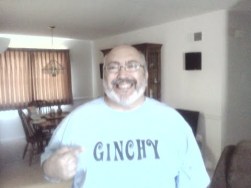 If there is any one secret of success, it lies in the ability to get the other person’s point of view and see things from that person’s angle as well as from your own. ~Henry Ford
If there is any one secret of success, it lies in the ability to get the other person’s point of view and see things from that person’s angle as well as from your own. ~Henry Ford
An art whose medium is language will always show a high degree of critical creativeness, for speech is itself a critique of life: it names, it characterizes, it passes judgment, in that it creates. ~Thomas Mann
I enjoy writing, but hate editing. I’ll do it, but it is a painful experience. From what I’ve read, a good number of you agree. Recently, I wrote two longer stories for submissions as opposed to the shorter/flash fiction I put up on Tale Spinning. For those tales I knew that if I was to have any chance of success they would have to be edited.
Luckily, I had a number of people I could call on to give my work an editorial eye. What I found enlightening was, through five different POV’s (points of views), that all who responded to my call saw something different. Grammatical changes pretty much were the same, with punctuation styles varying from one to the other.
What changed was how they approached the work: solely as Editor; solely as a reader of the genre; or a combination of the two. This allowed me to take what was offered, evaluate what I wrote through others eyes, and then edit myself to the point I felt I produced the best work possible.
To see the results of this: Nyctophilia (entered for the Figment/HarperCollins YA Defy the Dark contest). If the link does not work for you (and I think it only works in the US): go to Figment and type in the name of the story in the search box. I’d be interested in your comments, as I do think this story is publishable. The other story has been submitted, and only time will tell (both submissions had a September 1, 2012 cut off).
I want to thank the following for their time and effort: Golden Eagle; Allan Douglas; Roy A. Ackerman; Lisa Vooght;and someone who wishes to remain anonymous. The links are to their blogs. They are all well written, all interesting, and all very different POVs. Check them out.
Writers:
- How do you edit your work?
- Do you hate editing your own work?
- Do you have Beta Readers/Critique Partners?
- Are you part of a writing group?
- If you have an editor that you work with consistently, how did you find her/him?




Sep 04, 2012 @ 15:31:57
The true editor comments upon the content and it’s presentation…
That’s why every good author needs a great editor…(note the choice of adjectives…)
Sep 05, 2012 @ 10:33:05
Hmmm…adjectives…at least I’m considered a “good” author…;)
Sep 04, 2012 @ 21:48:31
I wish I had some betas I could turn to for some feedback. Sadly no one has the time or the inclination to help, or they simply don’t have the know-how to give helpful feedback. “I did, or did not like it” simply doesn’t help much. That leaves me as my worst critic (I hope) and an editor who is wonderful to work with.
Sep 05, 2012 @ 10:34:36
Anna, I had asked a number of people, and was fortunate to get the response I did. There were a number asked who never even replied one way or the other: “I can’t do it” is such a simple thing to say. Hope your editor stays wonderful.
Sep 05, 2012 @ 10:07:23
Stuart, Editing seems to be a never-ending process. Finding a good editor right for you can be difficult, and I suggest trying them out first. Just finished a massive task – editing my book for publication. It had already been edited twice, and gone through a highly professional critique group. Still had inconsistencies, repetitions, mistakes, etc. A one-week job turned into one month, and I’m still finding things to improve, correct, add, take out, etc..
Sep 05, 2012 @ 10:36:10
Yup..I found things that needed to be corrected that none of the others found: that was my putting the piece away for a few days then seeing it fresh again. I think we can over-edit work on our own: sometimes, we just have to hope that the editor/proof-reader will be the last best hope.
Sep 28, 2012 @ 05:52:46
Writing a novel can be a messy undertaking. The editing process will go easier if you devote time to plot in the beginning. For some writers, this means an outline; others work with index cards, putting a different scene on each one. Still others only have a conflict and a general idea of where they plan to end up before diving in. If you’ve been writing for a while, you already know how your brain works and what kind of structure it needs in order to complete big projects. If you’re just starting out, then this may be something you’ll learn about your writing process as you revise your first novel.